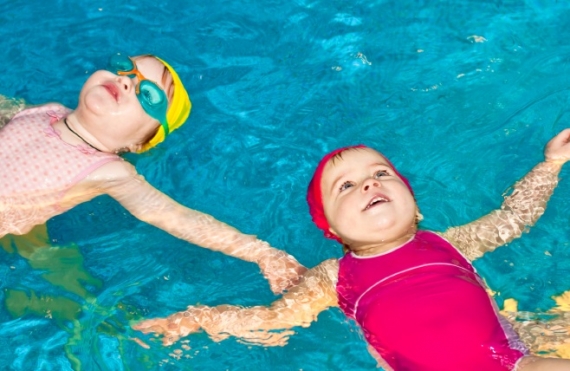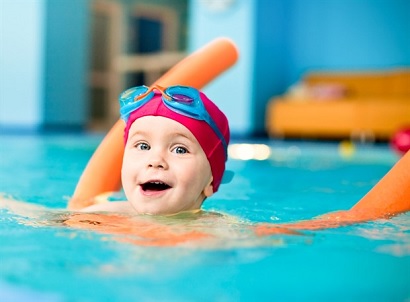AQUA-BABY
WHY TEACH BABIES HOW TO SWIM?
You would never leave your baby unattended near water anyway, so what are the benefits of having swimming lessons for babies?
Fundamental Lessons
Children who are enrolled in baby swim lessons will learn fundamental water skills that will help make it easier for them to learn to swim when they are older. Simple skills like blowing bubbles, kicking their legs and moving their bodies in the water will be learned in baby swim lessons.
Other important safety lessons will generally also be taught to small children. Lessons such as the importance of staying with a parent around water and not running or rough-housing around water will be presented to the children.
It is important for parents to realize that although baby swim lessons will help a child feel more comfortable in water, the lessons will not make a child safe from drowning. Baby swim lessons will teach and emphasize water safety to the parents so that they can keep children safe near water.
Exercise
Both adults and children can benefit from the activity and exercise in a baby swim lesson. Although the exercise might not be truly strenuous for an adult, it is at least some activity, and pool activity is beneficial. Children need exercise as well, and the baby swim lessons will encourage them to move in the water by using their arms and kicking their legs. When children are exposed to an active lifestyle and having fun swimming, they will be more likely to pursue active pastimes as they grow older.
Overcoming Fear
Fear of the water is strong in many people. Often children are uncomfortable around the water and do not want to get in the water. When parents take a baby swim lesson with a child, they are in a perfect position to help a child overcome this fear and become comfortable in the water. A parent can be much more effective at helping a child with this fear than another teacher that a child does not know and trust. If a child has a fear of putting his or her face in the water, often a baby swim class can help overcome this fear. Working through these fears when the child is very young will help the child learn to swim more readily when older.
Quality Time
Parents and children spending time together in a baby swim lesson are benefiting from spending quality time together. When a child feels and knows that a parent is focused completely and solely on him, the child feels loved and important.
What happens at swimming lessons?
Baby swim teachers aim to make their sessions relaxed and fun, and to encourage learning through play. Young babies are born able to do primitive swimming strokes. Your teacher will build upon these natural reflexes until your child is completely happy moving in and through the water.
Once the two of you are in the water, hold your baby in a way that allows you to keep eye contact. Give him constant praise to build his confidence. Your support and encouragement helps him to feel safe and secure.
Coffee groups are welcome. Have a catch-up before or after your swim with your coffee group in our big Playroom.
Have a free cuppa tea or coffee in our friendly home-environment.
Fees
Fees: $180 per 10-week term



